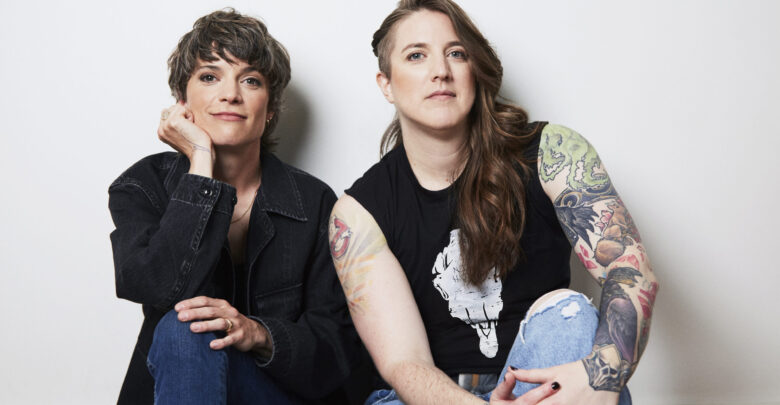‘Late in ’88’ podcast explores Queer experience in Alberta
'Late in '88' co-hosts Elinor Svoboda and Bronwin Parks discuss modern language surrounding gender and sexual identities and lived experiences.
 Supplied
Supplied Elinor Svoboda and Bronwin Parks were never friends during their time at school in Calgary in the 1980s. However, the pair reconnected over 30 years later to create the Late in ’88 podcast. It’s a limited series where they share their experiences growing up Queer and gender non-conforming in Calgary. The podcast also aims to spread awareness about the contemporary language surrounding gender and sexual identities.
Svoboda is an award-winning filmmaker with over 20-years experience in the industry. She also works as a dedicated educator. Parks is the founder of Feisty Creative — an agency for film, television, music, and digital media industries. They are also an advocate for diversity and equity.
Guest on the podcast include clinical psychologists, curriculum professors, and other experts. The purpose of the podcast is to spark conversations surrounding gender identity and emerging sexual identity. There is a focus on language use with children ages eight to 11, and how having that language allows for more freedom of self expression. They convey these topics through both retrospection and discussions with experts.
“[In the podcast] we went after our own lived experiences in our memories as well as the science behind what’s going on for all of us at that time,” Svoboda explained.
Svoboda and Parks also emphasized the Alberta curriculum’s lack of awareness on these kinds of topics. Additionally, they highlighted the importance of modern language use around children.
“Modern language is such a gift to this new generation of children. And this even includes Generation Alpha and Generation Z. They actively grew up with language around a much more broader definition for the varying gender identities and spectrum of sexuality, and I think that’s a gift,” Parks said.
They acknowledge that the language surrounding these identities is relatively new. Yet, Svoboda and Parks celebrate how children today are adapting to broader definitions of gender and sexuality. Parks finds it heartwarming to see how effortlessly children now use this language.
Svoboda and Parks also highlighted their collaboration with curriculum professor, Tonya Callaghan, from the University of Calgary. Their conversation centered around whether educators in the 1980s would have even been “armed with the right information to address questions around gender and sexuality.”
“We are trying to fill the hole that the provincial education system has left in this area,” Parks states.
The overall goal of Late in ’88 is to start inquisitive conversations surrounding the modern language about gender and sexual identities. They gear their focus towards what it means for children in middle childhood.
Svoboda and Parks hope that listeners revisit the “unfinished business” from their childhood in terms of amplifying their understanding on this topic.
“If folks are willing, that would be my hope. As well as that people dive into memory lane with us and maybe see themselves from a new perspective and are able to gain some understanding about their own experiences,” Svoboda explained.
–With files from Jennie Burton




